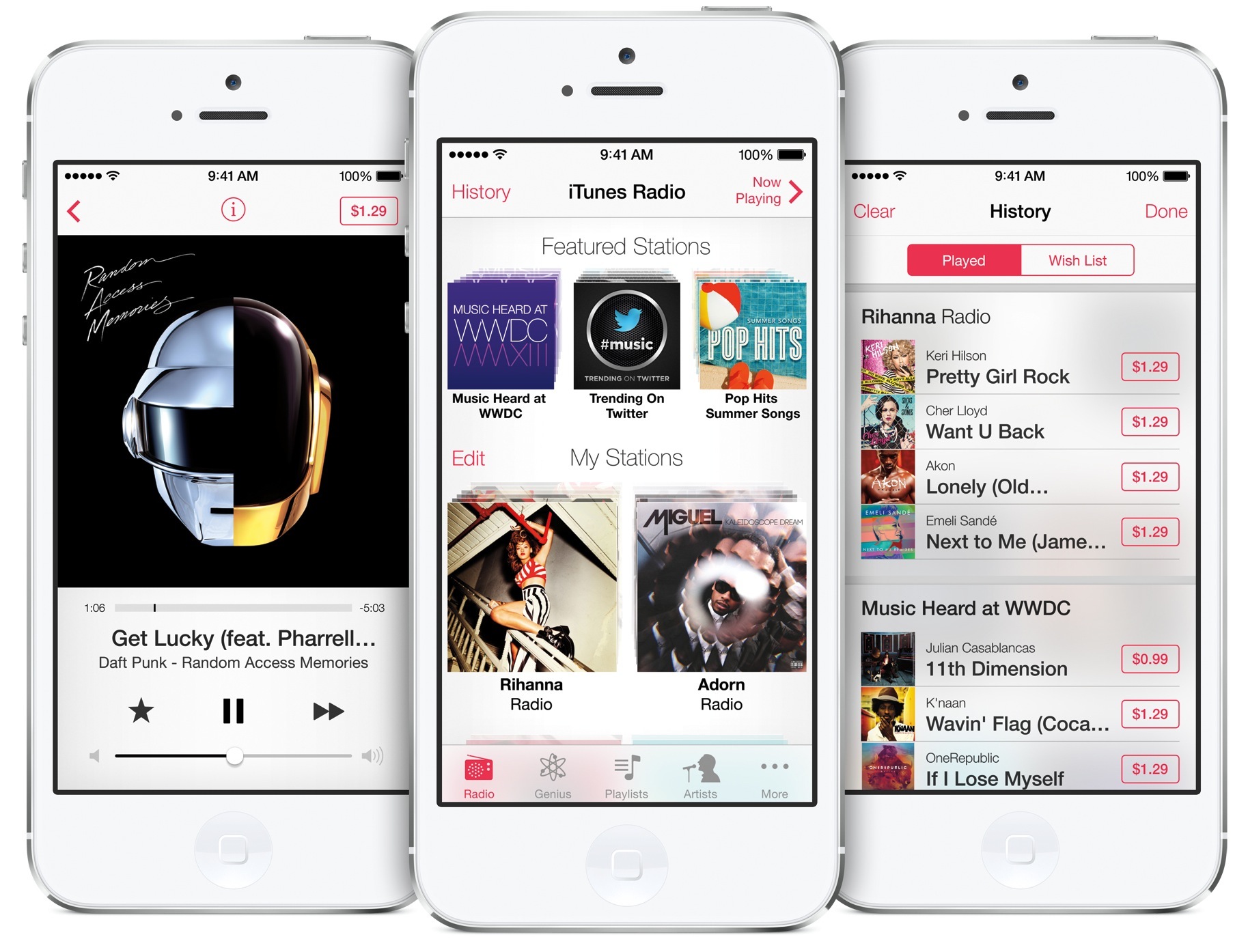
Bloom.fm, a London-based music streaming service, on Friday made it known on Twitter that Apple’s blocked it from advertising on its iAd platform, citing competitive reasons.
“Apple just banned our ads because we’re ‘a competitive service to iTunes Radio and it is against Apple policy'”, reads the tweet.
The service has a catalog of 22 million tracks that can be streamed for as low as £1 a month (about $1.67).
It’s easy to see why Apple has taken a stance against the service: its own iTunes Store sells individual song downloads for the price of a month’s worth of unlimited streaming on Bloom.fm. The development has prompted Bloom.fm to boast that “We must be big time now”, adding the team was surprised to learn that Apple even noticed what such a small company was doing…
Bloom.fm’s marketing director Jon Clark told The Guardian:
They stopped us advertising a few weeks ago and we were unclear why. Then we received an email from our marketing agency saying that it was against their policy to advertise competing services.
We’re amused by this rather than frustrated. It’s just pretty funny really. We’re a tiny app, so we’re surprised they even noticed what we were doing.
He said Bloom.fm won’t complain to advertising authorities about the iAd ban:
We’ve advertised with them on and off since launch, and we’ve been advertising pretty consistently with them for the past few months, so this came out of the blue.
We dabble in lots of different digital advertising, though, so they’re not a big part of our marketing mix. It makes no difference to our growth plans at all.
They were spending £2,000 per month (about $3,347) on Apple’s iAd network.
As of last November, Bloom.fm had 500,000 registered users and has since been adding customers at a rate of 111,000 new users per month and has now passed its millionth registered account. In addition to the entry-level £1 per month tier, Bloom.fm offers £5 and £10 a month tiers to download 200 or as many tracks as needed for offline listening.
Some outlets speculate that blocking Bloom.fm signals that Apple will soon roll out iTunes Radio to the United Kingdom. Indeed, some users in the UK recently reported being able to access iTunes Radio briefly on their iOS devices.
Now the third most popular streaming music service in the United States, iTunes Radio should arrive in the UK, Canada, New Zealand and other key markets later in 2014, according to Bloomberg.
In February, iTunes Radio launched in Australia.
Apple just banned our ads because we’re “a competitive service to iTunes Radio and it is against Apple policy” We must be big time now 😉
— Bloom.fm (@bloomfm) April 9, 2014
Industry sources are adamant that record labels have been mostly disappointed as iTunes Radio has failed to revitalize digital song sales thus far. Digital music sales are seemingly collapsing at a time when streaming services like Spotify, Rdio, Pandora, iHeartRadio and many others are picking up considerable steam.
Apple reportedly has a few aces up its sleeve to buck the trend, including a “dramatic” overhaul of the iTunes Music Store and adding high-resolution audio to its digital library. In the wake of these rumors, Apple is now beefing up its iTunes team with various engineering positions.
Also part of Apple’s rumored turnaround efforts: making iTunes play nice with Android, creating a true on-demand streaming service akin to Spotify and releasing a standalone iTunes Radio app for iOS 8 to boost engagement and increase ad sales on the service.
I’m surprised it took Apple this long to realize that people no longer see value in buying whole albums or individual tracks. Apple used to spearhead the digital music revolution and is still a major player in the space and it’d be a shame to see iTunes fade into irrelevance.
Streaming services offer the convenience of really low prices (between $9.99 and $14.99 per month, which is what a whole iTunes album typically costs) with unlimited access to millions of songs.
Clearly, this is how customers want to manage their music these days.
And where do you get your music from nowadays?